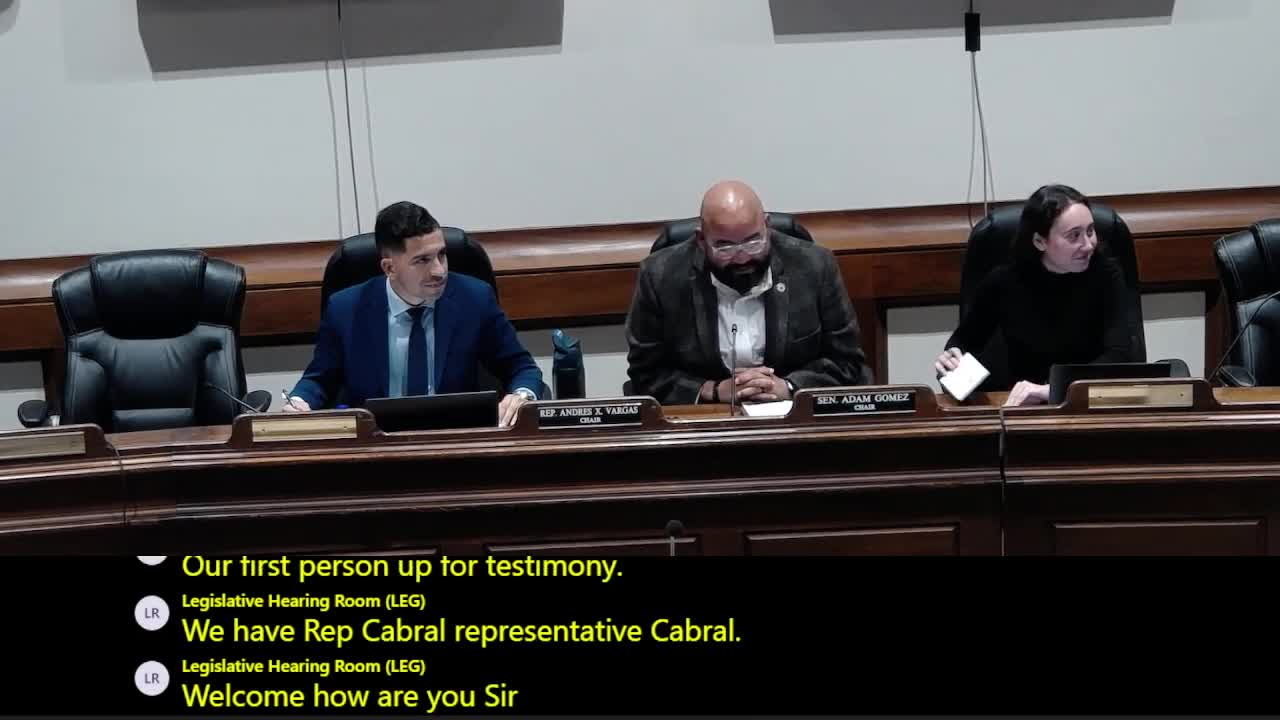Legislators and advocates press for state support of "school‑centered neighborhood development" bill
Get AI-powered insights, summaries, and transcripts
Subscribe
Summary
A joint legislative hearing on community development and small business heard lengthy testimony in favor of S.185 and H.298, bills to promote “school‑centered neighborhood development,” which backers say would pair state school investments with coordinated neighborhood housing, services and economic development.
A joint legislative hearing on community development and small business heard lengthy testimony in favor of S.185 and H.298, bills to promote “school‑centered neighborhood development” — an approach that pairs state school construction and services with coordinated neighborhood housing, health and economic investments.
Supporters told the Joint Committee on Community Development and Small Business that the legislation aims to seed local backbone organizations, coordinate state agencies and attract philanthropic and private capital to transform neighborhoods where new schools are being built or modernized.
The bill’s sponsors and advocates said the model treats a school not just as an educational facility but as an anchor for neighborhood revitalization. Representative Tony Cabral told the committee the proposal would change how communities plan around major school projects such as the new Condon Duval Elementary School in New Bedford: “What else are we doing there besides investing millions of dollars of both state and local money?” he asked, urging the state to build accompanying services and neighborhood investments.
Why it matters: Advocates argued that concentrating capital on a building without parallel investments in housing, health care, small business and community services leaves neighborhoods unchanged and misses an opportunity to improve student outcomes by addressing out‑of‑school barriers. Ben Foreman of MassInc said the bill amounts to “community schools on steroids,” adding that long‑term success requires combining school investments with housing development and resident wealth building.
Presenters described specific local conditions that the bill targets. Joshua Croak, who works in Worcester and Springfield, pointed to Mason Square in Springfield — where a new elementary school and adjacent vacant land offer a test case for coordinated investments. He said many neighborhood partners are already prepared to run programs but need stable seed funding and data collection to show results.
Speakers identified several components in the draft legislation: a dedicated fund to provide early “runway” grants to local backbone organizations, an interagency council to coordinate housing, education and community development agencies, and a data collection requirement to document outcomes and attract matching philanthropic dollars. Senator Pallano said the bill would also promote “planning side” work to align neighborhood development with school siting.
Questions from committee members focused on funding and coordination with existing state resources. Several witnesses and legislators suggested the Massachusetts School Building Authority (MSBA) and the state’s capital programs could be leveraged or asked to incentivize co‑located community facilities, while others proposed using other state revenues earmarked for impacted communities. Ben Foreman said philanthropy and private firms have previously matched state seeds in other states and that Massachusetts has philanthropic capacity to do likewise, but emphasized the need for clear data on outcomes.
Local practitioners described programmatic lessons and obstacles. A former community‑school organizer from Worcester described how city partnerships kept school doors open after hours and boosted civic engagement and attendance, while also warning that leadership turnover and collective‑bargaining rules for building staff can complicate after‑hours operations. Michael Moriarty, who said he has served on the state Board of Elementary and Secondary Education and works in community development, told the committee the sectors have different calendars, jargon and funding streams, and that a “quarterback” organization is required to bridge those gaps.
Supporters repeatedly cited out‑of‑state precedents including Maryland’s state investments and national community‑school models, and urged the committee to approve a bill that pairs seed funding with a clear accountability and data framework to attract private matches.
No formal committee action or vote on the bills was recorded during the hearing.
The committee accepted additional written testimony from local school and municipal staff and said it would consider the bill in a future markup session.
